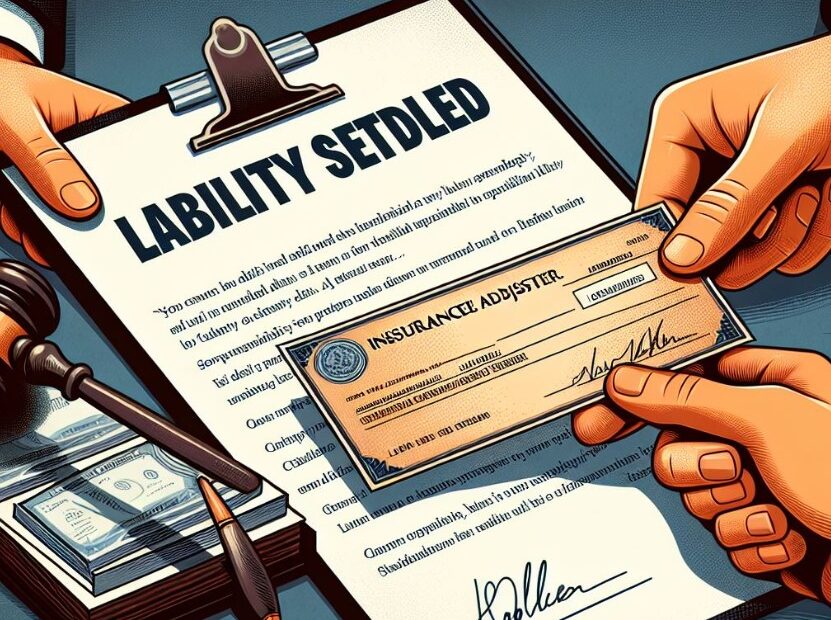In this article, we’ll explain What Does It Mean When An Insurance Company Accepts Liability? When an insurance company accepts liability, it signifies a pivotal moment in the claim process. This acceptance means the insurer acknowledges their policyholder’s responsibility in an incident, paving the way for claim resolution. It’s a critical juncture that impacts how the claim proceeds, from settlement negotiations to potential legal implications.
Key Takeaways
- Insurance Company Accepts Liability: This indicates the insurer’s acknowledgment of their policyholder’s responsibility in an incident.
- Impact on Claim Process: It affects settlement negotiations and the overall resolution of the claim.
- Legal Implications: Understanding the nuances of liability acceptance is crucial for both policyholders and claimants.
What Does It Mean When An Insurance Company Accepts Liability?
When an insurance company accepts liability, it essentially means that the insurer agrees their client is at fault for the incident in question. This admission is critical because it determines how the insurance company will handle the claim. They are now in a position to offer a settlement to the affected party or parties, and it sets the tone for further proceedings related to the incident.
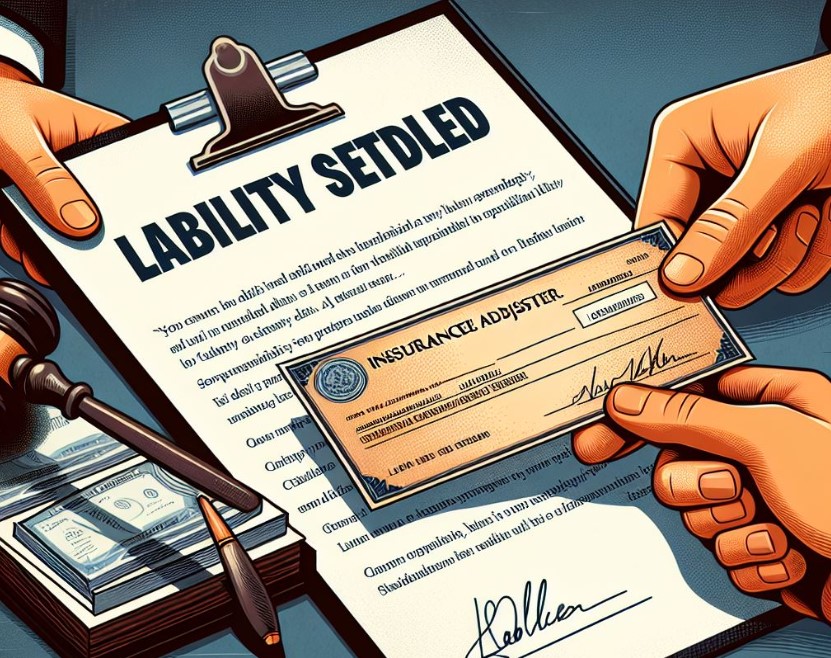
The Process of Liability Acceptance
- Investigation Phase: Before accepting liability, the insurer conducts a thorough investigation into the incident.
- Determination of Fault: The insurer assesses the evidence to determine the policyholder’s level of responsibility.
- Official Acceptance: The insurance company formally acknowledges liability and communicates this to all relevant parties.
The Impact on the Claimant and Policyholder
When an insurer accepts liability, it has significant implications for both the claimant and the policyholder.
For the Claimant
- Settlement Opportunities: The claimant can now expect a settlement offer from the insurer.
- Negotiation Process: The claimant has the leverage to negotiate the settlement amount.
For the Policyholder
- Increased Premiums: The policyholder may face higher insurance premiums in the future.
- Legal Protection: The insurer handles legal matters on behalf of the policyholder.
Settlement Negotiations Post-Liability Acceptance
Post-acceptance, settlement negotiations become a critical aspect of the claim process.
Approaching Settlement Negotiations
- Initial Offer Evaluation: Both parties assess the initial settlement offer from the insurer.
- Negotiation Strategy: Effective negotiation strategies are employed to reach a fair settlement.
Factors Influencing Settlement Amounts
- Extent of Damages: The severity of the incident significantly affects the settlement amount.
- Policy Limits: The policyholder’s coverage limit plays a crucial role in determining the settlement.
Legal Implications of Liability Acceptance
The legal implications of an insurer accepting liability are profound and far-reaching.
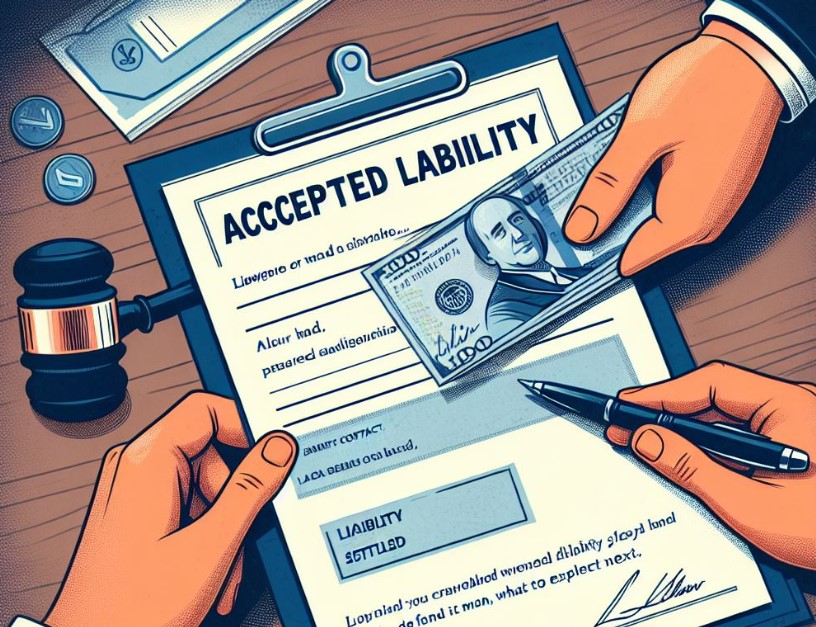
For the Claimant
- Legal Recourse Options: The claimant may pursue further legal action if the settlement offer is inadequate.
- Ease of Claim Resolution: Liability acceptance often makes legal proceedings more straightforward for the claimant.
For the Policyholder
- Legal Representation by Insurer: The policyholder is usually represented by the insurer in legal proceedings.
- Potential for Legal Consequences: If the settlement isn’t agreed upon, the policyholder may face legal challenges.
The Role of Evidence in Liability Determination
Evidence plays a crucial role in the insurer’s decision to accept liability.
Types of Evidence Considered
- Accident Reports: Police and accident reports provide critical information.
- Witness Statements: Statements from witnesses can influence the liability decision.
Importance of Accurate Evidence
- Determining Fault Accurately: Accurate evidence ensures the correct party is held responsible.
- Impact on Settlement Offers: The quality and reliability of evidence can affect settlement negotiations.
Insurance Policy Terms and Liability
Understanding the terms of the insurance policy is vital in the context of liability acceptance.
Key Policy Terms Affecting Liability
- Coverage Limits: Defines the maximum amount the insurer will pay.
- Exclusions: Certain scenarios where the policy does not apply.
Policyholder’s Responsibilities
- Reporting Incidents: Policyholders must promptly report incidents to their insurer.
- Cooperating with Investigations: Active cooperation with the insurer’s investigation is crucial.
Once an insurance company accepts liability, the aftermath involves several critical steps for both the claimant and the policyholder.
Steps for the Claimant
- Reviewing the Settlement Offer: The claimant must carefully examine the settlement proposal, considering whether it covers all damages and losses.
- Seeking Legal Advice: If necessary, the claimant should consult a legal professional to ensure the settlement offer is fair and just.
Responsibilities of the Policyholder
- Engaging with the Insurance Company: The policyholder must remain in close contact with their insurer, understanding the implications of the settlement.
- Managing Financial Implications: The policyholder should be prepared for possible financial changes, like increased premiums or deductibles.
The Settlement Process in Detail
The settlement process post-liability acceptance is intricate and requires careful handling to ensure fairness and adequacy.
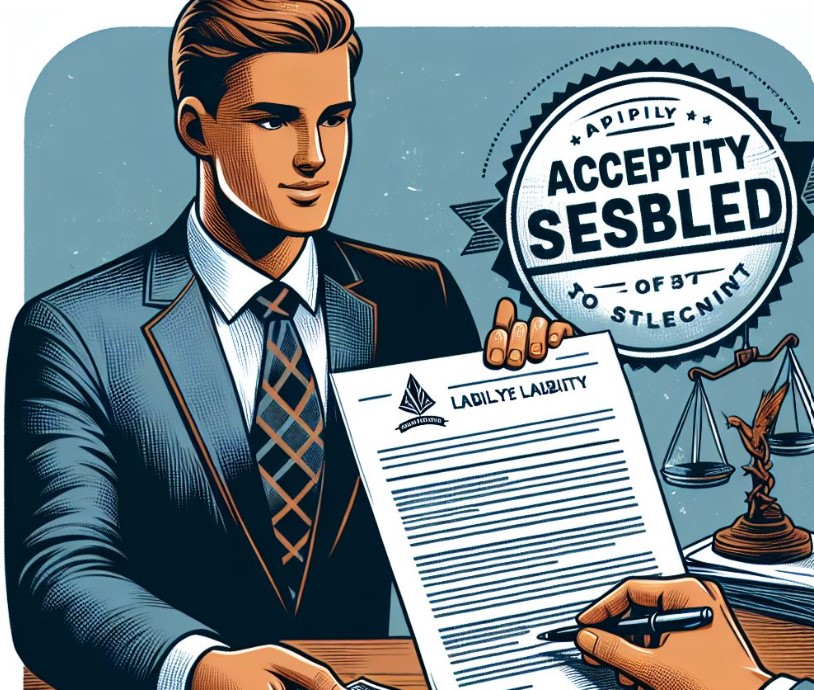
Finalizing the Settlement
- Negotiation to Final Agreement: Both parties engage in further negotiations to arrive at a final settlement agreement.
- Settlement Documentation: All agreements are documented in a legally binding settlement agreement, detailing the terms and conditions.
Disbursement of Settlement Funds
- Processing of Payment: The insurance company processes the settlement amount as per the agreement.
- Receipt of Funds: The claimant receives the settlement amount, marking the resolution of the claim.
Disputing a Liability Decision
There are instances where the liability decision by an insurance company may be contested.
Grounds for Dispute
- Inadequate Evidence: Disputes can arise if the evidence used to determine liability is considered inadequate or flawed.
- Misinterpretation of Policy Terms: Disagreements regarding the interpretation of policy terms can also lead to disputes.
Resolution of Disputes
- Internal Review by the Insurance Company: The first step often involves a review of the decision by the insurance company itself.
- Legal Action: If the dispute is unresolved, it may escalate to legal action where a court or arbitrator makes the final decision.
The Role of Insurance Adjusters
Insurance adjusters play a vital role in the process of liability acceptance and the subsequent actions.
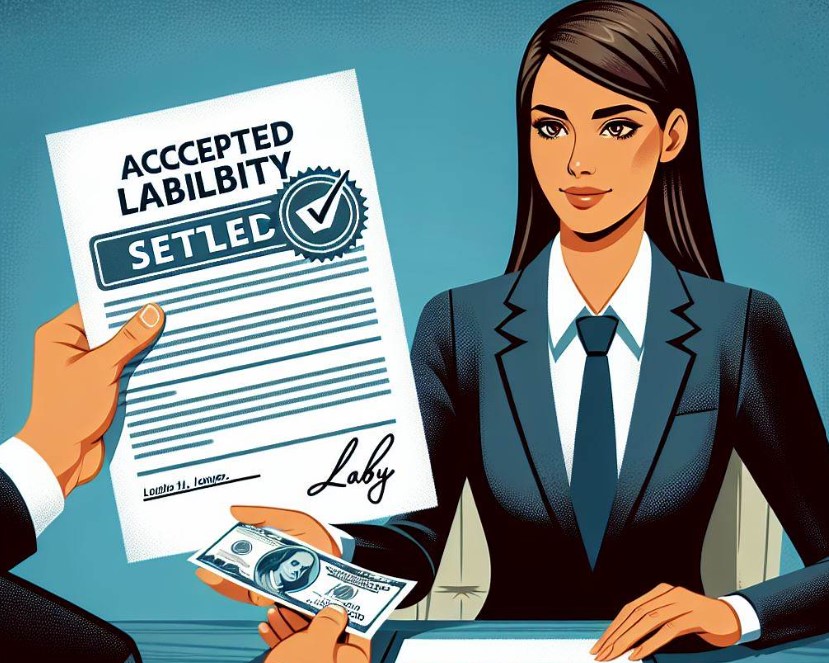
Responsibilities of Adjusters
- Investigating Claims: Adjusters are responsible for investigating the circumstances of the incident.
- Evaluating Damages: They assess the extent of damages to determine the appropriate settlement amount.
Interaction with Claimants and Policyholders
- Communication with Parties: Adjusters maintain communication with both claimants and policyholders, explaining processes and decisions.
- Negotiating Settlements: They are often involved in negotiating the settlement terms with the claimant.
Future Implications of Liability Acceptance
The acceptance of liability by an insurance company can have long-term implications.
Impact on Future Insurance Policies
- Policyholder’s Future Coverage: The incident may affect the policyholder’s future insurance coverage options and costs.
- Changes in Premiums and Terms: Policyholders might experience changes in their insurance premiums and policy terms.
Industry-Wide Effects
- Insurance Industry Standards: High-profile cases can influence industry standards and practices.
- Regulatory Changes: Such cases might also prompt regulatory changes to ensure fair and transparent handling of liability claims.
Conclusion
In summary, when an insurance company accepts liability, it marks a significant turning point in the claim process. This decision impacts both the claimant and the policyholder, influencing settlement negotiations and legal proceedings. Understanding the nuances of this acceptance, the evidence involved, and the terms of the insurance policy is essential for all parties involved.
People Also Ask
How does liability acceptance affect the claimant’s legal options?
When an insurer accepts liability, it typically simplifies the claimant’s legal options. The claimant can focus on negotiating a settlement rather than proving liability. However, if the settlement offered is not satisfactory, the claimant still retains the option to pursue legal action for adequate compensation.
Is it necessary to have legal representation when an insurance company accepts liability?
While not mandatory, having legal representation can be beneficial, especially in complex cases or if you believe the settlement offer is inadequate. A lawyer can provide guidance on legal rights and help in negotiating a fair settlement.
Can accepting liability impact the insurance company’s reputation?
Yes, how an insurance company handles liability claims can impact its reputation. Efficient, fair, and transparent handling of claims can enhance its reputation, while poor handling can lead to a negative perception among policyholders and the public.
How long does the settlement process take after liability is accepted?
The duration of the settlement process varies depending on the complexity of the case, the efficiency of the insurance company, and the negotiation process. It can range from a few weeks to several months. Prompt and clear communication between all parties can expedite the process.

Muhammad Talha Naeem is a seasoned finance professional with a wealth of practical experience in various niches of the financial world. With a career spanning over a decade, Talha has consistently demonstrated his expertise in navigating the complexities of finance, making him a trusted and reliable figure in the industry.
